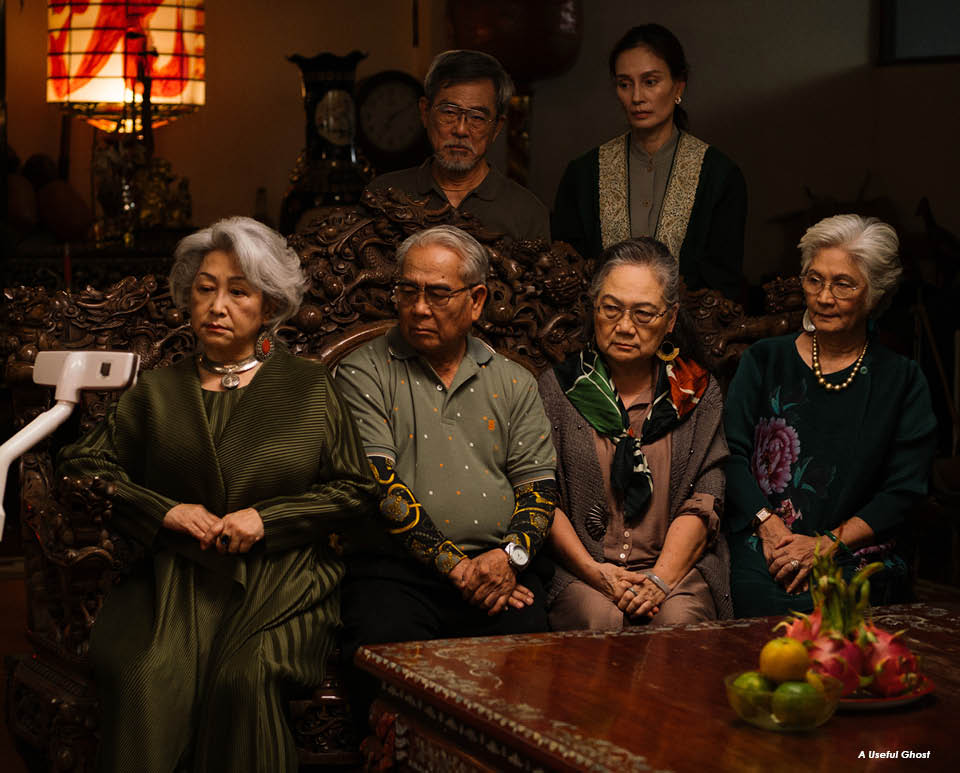
Just days before it got underway, the Cannes Film Festival revealed that Chinese film "Resurrection" would join its main competition. The addition meant two Asian films in the festival’s most-watched section and made for an only slightly less subdued Asian showing at the film industry’s most important annual showcase.
Such late additions for mainland Chinese titles have become a frequent occurrence, either because censorship approval for the title’s overseas travel has materialised at the last moment, or because the filmmakers have chosen to buck the system and give the film a career without China in the revenue mix.
The two Asian films in competition (the other was Japanese director Hayakawa Chie’s "Renoir") were admired by critics, but were not adored.
"Resurrection", an experimental 155-minute dreamscape dealing in the history of cinema over the past century, earned high praise for director Bi Gan’s vision and technical skills, but lost many with its tangled story.
"Renoir", a pre-internet tale about a girl trying to understand her father’s impending death from cancer, was damned with faint praise. Variety rated it as “just a little more special than the average coming-of-ager”.
Others were clear disappointments. Juno Mak’s "Sons of the Neon Night" was judged “paper thin” and confusing. While Ishikawa Kei’s "A Pale View of Hills" was regarded as a flimsy adaptation of Kazuo Ishiguro’s acclaimed debut novel.
Possibly the highest praise for any Asian film went to Thai title "A Useful Ghost", by first-time director Ratchapoom Boonbunchachoke. Taking the top award in the Critics’ Week sidebar section, the film is a bonkers tale about a haunted vacuum cleaner. It was widely lauded as fun and touching, but it too may have confused the reviewers.
One described it “a socio-political fable”. Another labelled it as, “A delightfully absurd Thai sex comedy”.
In the wider context, Asia was similarly subdued; Cannes, with its formal and informal rights markets represents the year’s mo...
Just days before it got underway, the Cannes Film Festival revealed that Chinese film "Resurrection" would join its main competition. The addition meant two Asian films in the festival’s most-watched section and made for an only slightly less subdued Asian showing at the film industry’s most important annual showcase.
Such late additions for mainland Chinese titles have become a frequent occurrence, either because censorship approval for the title’s overseas travel has materialised at the last moment, or because the filmmakers have chosen to buck the system and give the film a career without China in the revenue mix.
The two Asian films in competition (the other was Japanese director Hayakawa Chie’s "Renoir") were admired by critics, but were not adored.
"Resurrection", an experimental 155-minute dreamscape dealing in the history of cinema over the past century, earned high praise for director Bi Gan’s vision and technical skills, but lost many with its tangled story.
"Renoir", a pre-internet tale about a girl trying to understand her father’s impending death from cancer, was damned with faint praise. Variety rated it as “just a little more special than the average coming-of-ager”.
Others were clear disappointments. Juno Mak’s "Sons of the Neon Night" was judged “paper thin” and confusing. While Ishikawa Kei’s "A Pale View of Hills" was regarded as a flimsy adaptation of Kazuo Ishiguro’s acclaimed debut novel.
Possibly the highest praise for any Asian film went to Thai title "A Useful Ghost", by first-time director Ratchapoom Boonbunchachoke. Taking the top award in the Critics’ Week sidebar section, the film is a bonkers tale about a haunted vacuum cleaner. It was widely lauded as fun and touching, but it too may have confused the reviewers.
One described it “a socio-political fable”. Another labelled it as, “A delightfully absurd Thai sex comedy”.
In the wider context, Asia was similarly subdued; Cannes, with its formal and informal rights markets represents the year’s most intense dealmaking and announcement season for the non-Hollywood part of the film industry.
There was a flurry of MOUs between institutions, and a smattering of new title launches by production and distribution companies. Korean film sellers were forced to come to terms with their diminished slates and budgets and struggled to ink many big deals. Thai-based producer and location facilitator Nicholas Simon was notably able to capitalise on his recent role on HBO Max’s "The White Lotus". He launched two new joint venture companies, one in Thailand, the other in the U.K.
But, with Thailand the possible exception, Asia’s governments and producers appear unwilling to provide further cash to the film industry beyond their recent commitments and soft-power talk. That may reflect domestic political uncertainty in places including South Korea, The Philippines and Indonesia and economic fragility in the region.
U.S. President Donald Trump further soured the mood by his festival-eve announcement that he wants a 100% tariff on foreign films entering the U.S., though few people claimed to understand how that could work.
A bright spot for Asia, or Asian film’s future, was the shorts and student film (Cinef) section. There a Korean graduation film took the top prize, a mainland Chinese film came second, and a Japanese film took the third spot.
Elsewhere, the event was kept busy with falling palm trees, a new dress code forbidding “nude dressing” and voluminous outfits on the red carpet, and an exhausting obsession with measuring standing ovations.
By the end of the 12-day event there were just two front-runners for the competition section’s coveted awards. Iranian director Jafar Panahi’s "A Simple Accident" claimed the first prize, or Palme d’Or, while Norwegian director Joachim Trier’s "Sentimental Value" was named the runner-up. – By Patrick Frater































